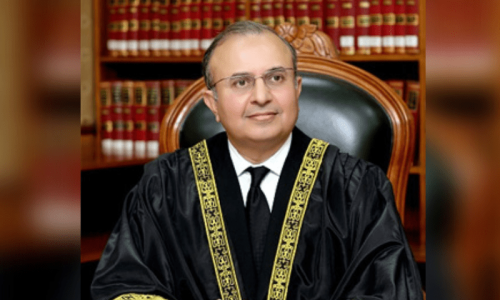
KARACHI: A book titled Pakistan: Origins, Identity and Future written by eminent physicist and writer Pervez Hoodbhoy was launched at the Pakistan Medical Association (PMA) House on Saturday evening.
Business and economy journalist Khurram Husain moderated the event. The first question that he put to the author was about the first part of the publication’s subtitle, origins. Mr Hoodbhoy replied the reason for writing the book was that the history that was taught at Pakistani schools and colleges was ‘full of lies’. When he was about 16 or 17 years of age he felt something was wrong, he said.
He thought of the 1965 war about which he had earlier felt happy. He himself tried to get into the armed forces but no one accepted him. It was something driven by the passion to defeat India. But later he came to know about Operation Gibraltar conceived by Ayub Khan. Something was not right, he said.
He said although he was not a historian, as a citizen he wanted to know how Pakistan came into existence and how it reached the situation that it’s in now. “The country was made on the basis of the Two-Nation Theory according to which there are only two nations in the subcontinent — Hindus and Muslims. They couldn’t coexist peacefully therefore they have to separate. Today when we inquire about the beginning of Pakistan, our textbooks suggest that it began in 712 when Mohammad bin Qasim arrived in Sindh and trounced Raja Dahir. He’s the first Pakistani.
Academic’s book on Pakistan’s origins and future launched
“But it’s not just us [Pakistanis] who have such ideas. In today’s India if you ask about the origin of Hindus, they’ll say they’ve been here from the beginning … from thousands of years back,” he said.
Referring to the first part of the first chapter in the book about identity formations in India, Mr Hoodbhoy said, “Research tells us that in the past there was no such sense of identity [of nations]. If in the days before Muslims came to this region you asked a villager in any part of India who he was, he wouldn’t have said he’s a Hindu; instead, he’d have told you about his village and profession. In other words, the Hindu identity did not exist. Those who follow Hindutva claim that they’ve been here from the beginning, Muslims came later. They also say that Muslims ill-treated them and broke their idols, etc, so we should now take revenge on them.”
On the other hand, he said, Muslims claim that prior to their arrival in India it was occupied by uncouth, illiterate people and we civilised them.
After commenting that the Muslim identity too was non-existent in the past, the writer shifted his focus to the Mughal period. “When the Mughals came to the region they kept Hindus in their courts as well. The Bhakti movement was a rebellion against the Brahmins. This was the period of syncretism. You couldn’t identify who Muslim or Hindu was. But a new period started with the arrival of the British.”
Mr Hoodbhoy said the British needed [local] people — doctors, accountants, policemen, etc, — with whose help they could control the country. They were small in number and wanted to rule over a large land. Hindus were educated, whereas Muslims were hardly educated. The British thought of setting up institutions where science and English would be taught. Hindus welcomed it, Muslims didn’t. In 1835 when Lord Macaulay talked about educational reforms, Hindus asked him to make colleges for them. In 1846, the University of Calcutta was built to which mostly Hindus got admitted. “If you look at the data in the book you’ll see that the Muslims’ condition vis-à-vis education was extremely poor.”
He said after 1857 a new chapter in history was opened and the two nations [Hindus and Muslims] started to drift apart. “If it comes to the question of employment, who shall get it and who shan’t, then the difference between people turns into a gulf. At that time someone from the Muslim community named Sir Syed stood up and argued that the reason for Muslims’ downfall was that we couldn’t move along with modern times. That’s how the Two-Nation Theory came about.”
At that juncture, the moderator raised the question whether it was inevitable that the end of British rule resulted in partition. Mr Hoodbhoy responded that nothing could be said with absolute certainty.
This made Mr Husain touch upon the point that the British Indian army didn’t interfere in civilian affairs. After partition, the army in Pakistan interfered in civilian matters. Mr Hoodbhoy answered that was inevitable. He explained that apart from the Quaid-i-Azam, the Muslims had no leader. There were feudal, businessmen and landlords. There were very few educated people. Two years after Mr Jinnah’s death, the Muslim League got broken because it had a wadera outlook on life. The army was the only disciplined force.
After the conversation, the floor was opened for the audience. Mr Hoodbhoy received a series of queries which he answered with a great deal of patience.
Replying to a query he said that there’s no difference between the PTI and the PDM.
About the current crisis, he was of the view that the system is about to change and collapse because now no one wants to give us loans.
Published in Dawn, April 30th, 2023











































Dear visitor, the comments section is undergoing an overhaul and will return soon.